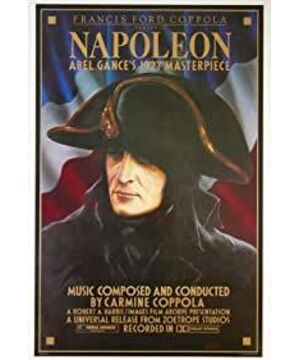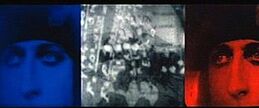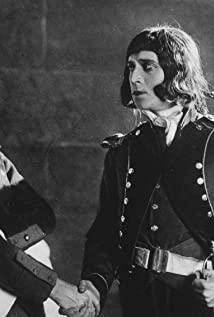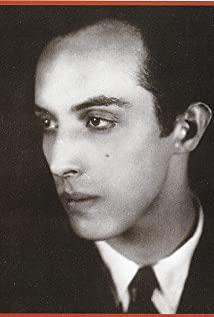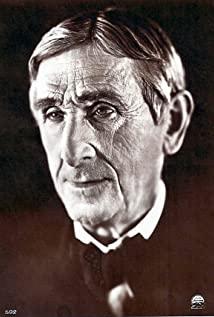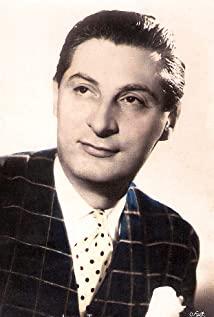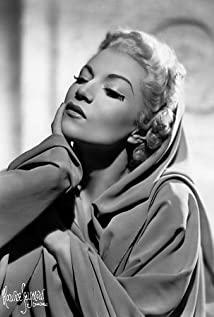great leaders of the French Revolution will arouse fierce controversy. They have made friends and mortal enemies. Few people are indifferent to them. The evaluation of them depends in part on who will win the worldwide fight. ——Nixon’s "Leader"
For many years, Napoleon Bonaparte has been an image of a tragic hero in the hearts of people of all countries. Many people know that he is an "aggressor" and a "dictator", and they do not consciously treat him. Different from Hitler, Genghis Khan and his ilk, his sins are more regrets than hatred, and his mistakes are more sympathy than ridicule. Napoleon seems to have an indescribable charm that makes him higher than the conquerors of the past, occupying a commanding height in history, condensing the gaze of tens of thousands of people beyond themselves, and ultimately making all careerists feel desperate. .
What kind of charm and commanding height is this? When Beethoven heard the news that he became emperor, he angrily crossed out the inscription of the heroic symphony dedicated to him; when the enemy kingdoms Byron and Shelley heard of his fall, they wrote a long poem to express his regret. Laughing; when Julian went on a trip alone, took his portrait with him, and hid his portrait in the corner of the room like a wanted criminal. Whenever he encountered frustration and hesitation, he would take it out and stare for a long time; when a group of passionate young people were in the east He became a prophet and a saint when the mainland was undergoing a revolutionary revolution; [1] When someone explored the way in the prosperous years of "who is with me", he was once wrapped tightly in an empty backpack. A biography almost torn down. For more than two hundred years, he has almost been the spiritual idol of all ethnic groups to inspire young people to move forward.
This kind of complexity, contradiction, and bizarre, we must start from the matter of his proclaiming the emperor. We have seen all kinds of "restorers" have been criticized by textbooks from all over the world. Only Napoleon's proclaiming the emperor was only mentioned in one stroke. We saw him wearing a laurel crown with his own hands, restoring the court's etiquette and hereditary system wildly, and burning the war to the Tunguska River and the Kremlin, but we still felt that the vitality was a symbol of freedom, equality and fraternity. Why do many people have such a perceptual understanding? Because in their view, Napoleon’s proclaiming the emperor was a last resort. It was the pre-constitutional training and the fire to defend the French Revolution from being extinguished by the vast ocean surrounding the French island! Is that right? To understand all of this, we must first look at the general trends of the two worlds-one is the spiritual world of Napoleon, and the other is the European world of the French Revolution.
2. Bonaparte-Prometheus
If you could understand the dream that fires my soul, you would all follow me! UNIVERSAL REPUBLC: Europeon will become a single people, and anyone, wherever he travels, will always find himself in a common fatherland. Many wars will be necesary, but I proclaim it here for posterity, victories will one day be won without cannon and without bayonet.-Abel Gance, "Napoleon"
In "Social Contract Theory", Rousseau overlooked the many empires from ancient times to the present, but he specifically described an inconspicuous island: Corsica. He said that there is a hunch that this small island will one day make the world sound. When he died with a melancholy salary, a stubborn teenager in Corsica grew up day by day. This young man fell into a flock of geese like an eagle, and was insulted, mocked, ostracized, and reprimanded by his talents. In the notebook full of Rousseau, Montesquieu, Alexandria, Caesar, Siege, Machiavelli, and the Twelve Caliphs, I wrote a paragraph analyzing the right and wrong of suicide. Behind the gloomy cloud, he inspired himself with a gleaming word, who could only eat a dry bread a day, slept for four hours, and danced on the tip of a stormy knife: "Genius figures are like meteorites, and their destiny is destined to be a photo. Brighten the times and deplete itself."
Some people always use abstract terms such as "democracy" and "freedom" to emphasize what is noble and what is humble. In my opinion, the people at the bottom like democracy and freedom because they are the oppressed and eager to get ahead; the people at the top don't like democracy and freedom because they are the rulers and don't really want the newly emerging figures to shake their status. In this way, the double reed drama of revolution and authoritarianism was quietly staged in the erratic light of the same human nature. This is the general European trend of the French Revolution in which Louis XVI sighed after the third-level meeting, and the "sleeves" outside the Bastille had already taken up arms. This is also the spiritual world of Bonaparte who sharpened his ideological sword of equality from Rousseau's essays, and found the unfathomable conch from Caesar's war records.
The nobility and common people have caused a decade of bloodshed. Robespierre fell on the guillotine he designed, Lafayette traveled between two continents, Thomas Paine cursed Washington in prison, and France wept in helplessness. At the same time, a short little general, far away from the political whirlpool of Paris, commanded a small detachment that could not pay for the army, could not wear shoes, and was as naked as a dish, over the snow and ice of the Alps. , The petals of victory were scattered under the feet of the soldiers with magic-like iron hands. He told them to use a long sword to write the "Declaration of Human Rights" all over the land of Europe. He did this and thought the same, until the last moment of his life-at that time, he was nailed to the Caucasus like the one who stole the fire from the sky. On the cliff, like Prometheus, who endured the wind and the sun all day and the vulture bites, on the desert island of St. Helena in the Atlantic Ocean, he was separated by thousands of miles from everything he knew well. What happened from Corsica to St. Helena? What did you comprehend again?
3. Napoleon-the soul of France
, the Hall of Independence has been in the center, the monument of Seoul has been towering in Gaogang, and the god of liberty has been pointing to the sky on the left and the right to the ground, appearing for you. Husband! The sky is clear, with a thunderbolt, and the dancing of the sleeping lion that has been scared for thousands of years is revolution and independence. ——Zou Rong, "Revolutionary Army"
Napoleon and France held hands, less than twenty years. In those twenty years, the Eastern Continent slept under braids and butcher knives. It seemed that the fire of civilization would be extinguished on the species "human", but the European people on the other side of the world were awakened by the French tricolor flag. "I have opened up a big road, and everyone can find space on it." Napoleon thus condensed France in the revolution. "The establishment of the kingdom of reason allows people to fully develop and enjoy all their talents without restriction." Napoleon thus made France the center of Europe and shocked the whole world with her unprecedented brilliance. "Cancel all mediators between the upper and lower levels." The two poles of the nobility and the common people miraculously got barrier-free communication in his hands: the social status of a person depends on a person's talents rather than a birth-this is actually It is the ultimate goal that all revolutions can achieve.
After he condensed this goal into the three principled vocabulary of "freedom, equality, and fraternity" that had been washed away by the law and conquest, he took the privilege of birth as a life-saving straw and formed seven anti-French alliances. Want to prevent the spread of this principle, want to strangle the French Revolution in the cradle. In this way, France became an unstoppable lake of fire for nationalism, spreading the fire of revolution to every corner from the pyramids to the Andes. The people of France in this lake of fire, like an isolated island that is sinking slowly, are all anxious all day long. Without the appearance of a powerful person, they must be like children in the mountains and forests, always facing wolves, tigers, snakes, rhinos, and hyenas. This powerful figure is the first ruling Bonaparte, who transformed into the "Emperor of the French" Napoleon I. After 99% of the plebiscite voted for him to become emperor, did he betray the principles of the revolution? In other words, would he feel that he was born noble, even the gift of theocracy? See how proud he is, not vanity: "Throne? It's just a piece of wood covered with satin!" Then a sly smile: "You and I privately say that adults are also dominated by toys."
He told the French Revolution The principle of loyalty is loyal. Therefore, the people of France are also loyal, whether they become generals the next day, peasants who drag their muddy feet and eat a pot of food with him, or commanders who lead the way but are demanded. Astronomers who walked between the soldiers and donkeys to avoid shelling, all have a kind of affection for him that is close to that of a brother and a father. This sentiment reached the first climax when he returned to France from Elba Island alone: "Brothers of the Fifth Legion, if you want to kill your emperor, open it. Gun, I'm here! "Without a bullet, not a drop of blood, the French people drove away from the Bourbon dynasty and welcomed him back to the satin-covered wood. This sentiment reached its extreme when the anti-French alliance soldiers approached the city of Paris—all the students of the Polytechnic University demanded to participate in the war, resist the restoration of the Bourbon dynasty, and defend His Majesty the Emperor. Please note that it is at this moment to judge whether a nationalist is true or not; is it just to use nationalism as a mobilization tool to satisfy one's hysterical possessiveness and torture others' desire for destruction, or to treat it sincerely like in life The other half of her loves this nation like this, so that she and her children can live well, just look at this moment.
One hundred and twenty-nine years later, a moustache who seemed to resemble him faced a similar moment. What he chose was to destroy all industrial bases and means of production. "I failed. The German nation is not worthy of survival. Erase it!" [2] And Napoleon chose a humorous imperial decree: "I will not kill my hen for the sake of golden eggs!" He gave up all mobilization methods that would cause civil war and warned the French Live well under the restored Bourbon dynasty, and let the "French spirit" continue to spread and pass on, while he alone bears all the responsibility for failure, heading towards the Caucasus rock in the tens of thousands of waves, towards the end The revolution of one person. Several years later, hundreds of thousands of residents braved a snowstorm to greet his coffin in Paris. Hundreds of countries searched for each of his last words, including a sentence summarizing the final failure. What kind of generous statement, is it a fierce accusation, or a statement like a quotation? "The reason why I failed is that I haven't eaten porridge with my old subordinates for a long time." The phrase "Peace, Struggle, Save China" in Cantonese, Mandarin, and English [3], although the tone is different, has a similar weight. With such a leader as the soul in the depths of history, a nation will never fall down!
Four. Four variants of a national leader-eagle, lion, camel, and child.
Bring your love and creativity and go into loneliness! Slowly justice will drag its feet and follow you behind. ——Nietzsche’s "What Zarathustra Says"
How can a nation’s leader be truly great? How can a national leader become the soul of the nation and the backbone of the nation? He not only needs to use human standards to demand himself, not only indulge in human emotions and six desires, he should be the incarnation of four roles, and these four roles are constantly transforming on him: eagle, lion, camel, and child.
First of all, he must have a pair of eagle eyes, his thoughts must fly to the height of an eagle, with deep insight and foresight, to see where a nation comes from and where to go, and even see the destiny and the whole of mankind. The laws of the world. When William Schayler described Hitler’s imprisonment in "The Rise and Fall of the Third Reich", he once emphasized: "He not only reviewed his past thoroughly, but also reviewed the past of the German nation thoroughly. His heart burned again. The indisputable sense of mission is not only for themselves, but also for Germany.” Many men saw this and couldn’t help but admire: “This is simply the highest state of a national leader!"
No, my friend, this is actually the most basic state of a national leader. . If a leader does not have the Qianqiu empire in his heart and has a history of thousands of years in his hands, he will not have the self-confidence of "a million soldiers in his chest", he will not be able to arouse the belief of a nation, and it is impossible to awaken the nation's history of hundreds of years. Nature. This is true of the great leaders of every nation. Churchill of England once wrote four volumes of "History of the English Nation", Nehru of India wrote letters to his daughter in prison to write world history, and Nasser of Egypt once wrote "Revolution" Philosophy. In ancient times, Emperor Taizong and Caesar of the Tang Dynasty also wrote twelve articles "Difan" and five "Records of War". A national leader is not necessarily a scholar or theorist, but he is first of all a thinker with a consistent system and a strong idealistic color, without exception.
On this basis, he must have the coercive power of a lion. A leader without coercive power, no matter how high your prestige and knowledge, you are doomed to two words: failure. Before Mr. Sun Yat-sen founded the Whampoa Military Academy and formed his own revolutionary armed forces, he had no coercive force. Therefore, he had no coercive force in the name of "Father of the Republic", and he was left in exile. On the contrary, Lincoln used the coercive force of the federal army to defend the concept of "the people have the rule by the people", so he can succeed. When Muhammad took his servants out of Medina, he was not a messenger of Allah, and after he and generations of believers raised the full moon scimitar and rushed out of the Arabian Peninsula, Islam had a terrible power. Genghis Khan has a well-trained and ruthless combat machine, so although he only has the ideal of "let the place covered by the blue sky become my ranch", no one can do anything about him. The secret of Mao Yishan's downfall, he himself admitted that power comes from the barrel of a gun.
And what is the source of coercive force? It is the two abilities of leaders: organization ability and propaganda ability. Organizational ability can combine thousands of threads into a powerful force for my use, while propaganda ability is instantly thrown into the pyre of the people like a torch, instantly igniting the flames that melt the will of the Himalayas.
God has no relatives, and the fate of leaders and nations is bumpy. In ancient and modern times, in China and abroad, no nation or leader has survived smooth sailing. They have experienced various forms of suffering in the early, middle and late stages. Gou Jian was a serf in Fucha and tasted the dung himself; Ran Min had tolerated for many years and was forced to admit the thief as his father; Stalin experienced six arrests and seven exiles; Mandela silently conquered the walls for the rights of blacks. Seven years; Roosevelt was suffering from polio in his prime of life and was unable to leave the wheelchair for his entire life; Gandhi was first driven off the train by racial discrimination, followed by countless imprisonment and hunger strikes; Wallace endured the knife and axe on the execution ground Saw, in the hope that he could be released by pleading, he chose to shout out the last "Freedom!" for the Scots... To become a leader, you must give the nation's suffering and the suffering of every compatriot a commitment and commitment. Sincere compassion, because power is responsibility.
Therefore, a leader has to become a camel, supporting a nation to walk through the desert without oasis and moonlight in the subconsciousness of compatriots that no one understands. If there is no such courage to die without regrets and perseverance, without the determination of "the sea has no peace, my heart is endless" [4], he will not be the leader of a nation. And without such a leader, there is no hope for a nation.
Finally, he has to be a child. The vision of the eagle, the passion of the lion, and the self-discipline of the camel are man-made products. Behind man-made, there must be natural will to support himself. Natural will is the innocence and innocence. I once stared at the photos of Sun Wen and Lincoln. Their eyes were as pure as children. There was a great love for a nation, and even an understanding and scrutiny of every position of mankind.
This kind of natural will is brought by every child from the mother, and the natural will of a nation is also accumulated from the remnants of the matrilineal clan. "To man has no self, gods have no merit, and saints have no name" [5]. When a leader completely abandons his petty desires and distracting thoughts, he will not be afraid of any kind of bad luck, he will not be afraid of any kind of bad luck. Failure and discouragement, he will always be like a child, smiling in anger, arrogant in pain, interested in everything, seeing the strengths in front of him every moment, judging the value of their existence, and knowing clearly The earth, as solid as a rock, told myself: In the bullet holes of the stars, there will be a bleeding dawn.
[1] See Zou Rong's "Revolutionary Army" Chapter 3, "Revolutionary Education" and other chapters, once said, "If Napoleon, this earth race will be respected as a great hero...it is necessary to create countless nameless Napoleon, It is very helpful.” During the Republican Revolution, it was very common to admire Napoleon. The blue sky and the red flag all over the ground were also related to the French Revolutionary Tricolor. Gein Napoleon was the incarnation of the French revolution, and the French revolution was also the pioneer of the revolution in world nationalism and civil rights. Because of the enslavement of the Manchu and Qing Dynasty, my Huaxia suddenly saw the French Revolution, recalled my inherent legacy, and saw the virtuous, so I called the Napoleon of China.
Napoleon’s leadership rescued France from the darkness of encirclement and suppression, and reformed France into education, land, technology, finance, Gaul history, French, medicine, family, administrative region, sovereignty, and legal codes. A social contract is a prerequisite for freedom and civilization.
And in this process, Napoleon never gave up his pursuit of the Republican Constitution. After returning to France from Elba for a hundred days, he had ended his political training and fully promoted the constitutional system. This is even the capital of Constant who misunderstood him for a long time. Deeply agree with the active cooperation. Moreover, in order to end the hidden dangers, Napoleon also eliminated serfdom, religious courts, and feudal fiefs and forcibly promulgated codes.
Napoleon could have escaped, but he learned that the enemy was approaching Paris, so he wrote to the parliament, asking them to authorize them to lead their troops against the enemy, and kill him after victory. After being rejected, the French cruiser wanted to divert the enemy away and let Napoleon rush to the ocean and escape to the United States. Napoleon once again refused, saying that he was no longer the emperor, and it was not allowed to sacrifice cruiser officers and soldiers for him.
Before his death, Napoleon donated all his property to the French people and his 90 benefactors in his life, some of which were dedicated to the provinces that suffered foreign wars in Waterloo that year. As a national hero, there are very few people who can achieve his level.
[2] See Chapter 31 "The End of the Gods: The End of the Third Reich" in William Schayler's "The Rise and Fall of the Third Reich", that is, the rest of Hitler's works.
[3] See Sun Wen's "The Will of the Founding Father" and so on.
[4] Gu Yanwu's poem "Jing Wei": "Everything has unevenness, so why don't you have to suffer yourself; a long general who will hold the tree until the end of the age? I want to level the East China Sea, and my body and heart will not change; the sea has no peace, and my heart is endless. Time."
[5] Zhuang Zhou, "Zhuangzi's Escape".
View more about Napoleon reviews


